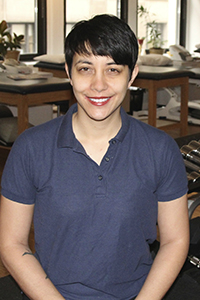Ok, ladies, time to get personal here. Today, I’m sharing what you need to know about your pelvic floor. I know, it sounds like a snooze fest, but listen up because pelvic floor dysfunction affects one in four women in the US, it doesn’t discriminate based on age and not enough of us know about it.
Last year I discovered that a weak pelvic floor was affecting my day-to-day quality of life. I had symptoms like urinary urgency that I had forced myself to accept as part of everyday life. I shrugged it off as “getting older” until I finally spoke up about it and learned I didn’t have to live that way. We should never accept discomfort in any part of our lives. My quest to relieve the discomfort I was feeling brought me to Dynamic Sports Physical Therapy where I worked with Iwalani Crush, PT, DPT, who specializes in pelvic floor dysfunction.
 She and I sat down to talk more in-depth about this taboo topic.
She and I sat down to talk more in-depth about this taboo topic.
- Lack of exercise: Like any other muscle, these muscles become weak, stretched and no longer work well if not exercised.
- Straining during bowel movements: Forcefull ‘pushing down’ to open the bowels can weaken the pelvic floor.
- Excess weight: Too much weight adds pressure to the pelvic floor.
- Chronic coughing: The act of coughing creates bouncing on the pelvic floor which can damage and stretch the muscles.
Malasana


Legs Up the Wall

Child’s Pose

About Iwalani Crush, PT, DPT
Iwalani is a graduate of New York University, where she received her Bachelor of Arts degree in 2005. She subsequently received her Doctor of Physical Therapy (DPT) degree with honors from New York University in 2009. As part of her Doctorate degree, Iwalani completed clinical rotations and observations treating a variety of orthopedic, pediatric, acute, cardiopulmonary, integumentary and neurological conditions in inpatient/hospital, outpatient/private practice settings located in Hawaii, West Africa, and New York City.
Prior to becoming a member of the Dynamic Sports physical therapy team, Iwalani was a therapist for 3 years at Burke Rehabilitation Hospital in White Plains, NY. While at Burke, Iwalani was involved in the multi-disciplinary management of patients in the Subacute/Nursing Home facilities, Single/Double Joint replacement and Amputee Unit, Cardiopulmonary Unit, and Traumatic Brain Injury/Spinal Cord Injury/Stroke Units. In addition to her experience at Burke, Iwalani has a comprehensive pediatric background from working in the NYC public and special education school systems through the Board of Education, and at outpatient Sensory Integration Gyms through Keep Children Moving. Recently, she has taken courses through Herman & Wallace for the evaluation and treatment of both male and female pelvic floor dysfunction.
Iwalani’s versatility in conjunction with her educational background equips her to holistically treat a variety of conditions, patient populations and age groups. Notably, she is Basic Life Support for Healthcare Providers (CPR & AED) and First Aid, Advanced Cardiac Life Support, and Beginners Pilates Mat Certified.




[…] I wrote about my experience with pelvic floor dysfunction. In large part, the reason I was experiencing such discomfort was because I had high tone pelvic […]